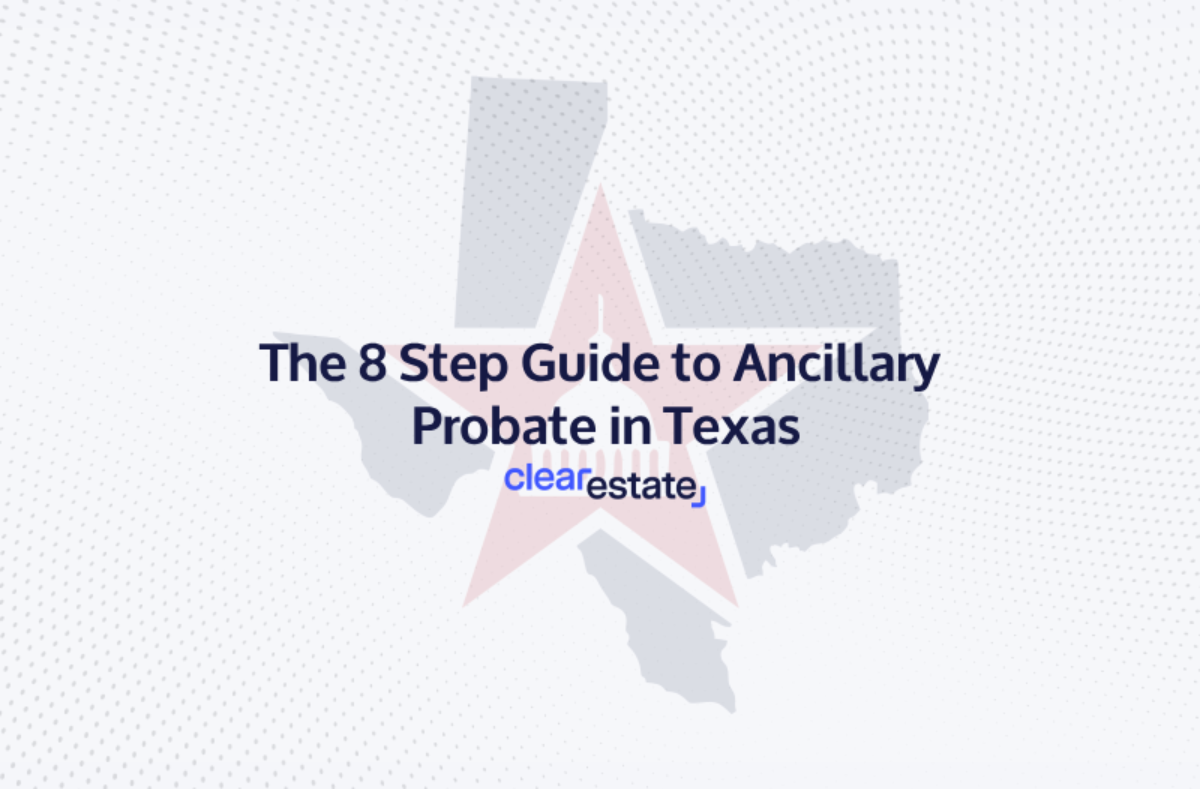Estate Settlement
May 01, 2025
What to Do When Someone Dies in California
Follow this step-by-step guide to navigate legal duties, probate, and estate tasks with clarity and confidence.
Ancillary probate in Texas: Learn when it's needed, 8 steps to initiate, and 6 main costs. Handle out-of-state assets efficiently with expert tips.


According to Texas Estates Code Sec. 501.001., Ancillary probate in Texas is a legal process required when a non-resident decedent leaves property within the state. This procedure ensures that the Texas assets are properly transferred according to state laws and the decedent's wishes.
The primary purpose of ancillary probate is to give the Texas courts jurisdiction over the in-state property, allowing for its legal distribution. This process runs parallel to the main probate proceedings in the deceased person's home state, focusing specifically on the assets located within Texas borders.
Ancillary probate becomes necessary in Texas when a non-resident decedent owned real estate or tangible personal property within the state at the time of their death. This requirement applies regardless of whether the deceased person had a will or died intestate.
Common scenarios that trigger the need for ancillary probate in Texas include:
It's important to note that not all assets require ancillary probate. Intangible assets like bank accounts, stocks, or bonds are typically handled through the primary probate process in the decedent's home state.
Initiating ancillary probate in Texas involves several steps and requires careful attention to legal procedures. Here's an overview of the process:
Unlike a dependent administration case, ancillary probate proceedings are generally faster since the deceased left fewer (albeit higher value) assets.
During this process, the court will determine whether to recognize the foreign will and probate proceedings. If approved, the court will issue letters testamentary or letters of administration, granting you the authority to manage the Texas assets.
The timeline for ancillary probate in Texas can vary significantly depending on several factors:
On average, straightforward ancillary probate cases may be resolved within a few months, while more complex situations could take a year or longer to complete.
Just like any probate procedure, there is a cost associated with the court proceedings - and an Ancillary probate proceeding is no different - which comes with various costs that should be factored into the estate administration process.
These expenses typically involve 6 main costs:
The total cost of ancillary probate can vary widely depending on the value and complexity of the Texas assets, as well as any complications that arise during the process. It's advisable to discuss potential costs with a legal professional experienced in Texas estate administration to get a more accurate estimate for your specific situation.
To handle out-of-state property matters in Texas smoothly, consider these 5 essential tips:
Managing property matters for out-of-state decedents in Texas can be intricate, but with proper knowledge and support, you can navigate the process effectively. Each estate presents unique challenges, and specific steps may vary based on individual circumstances.
Feeling overwhelmed or uncertain about handling Texas property in an out-of-state estate? We're here to assist. Book a free consultation with our estate experts today for personalized guidance and support throughout the entire process.
 Simplify Probate Today
Simplify Probate Today
Get expert guidance from our specialists who've helped 10,000+ families.
Book a free consultation